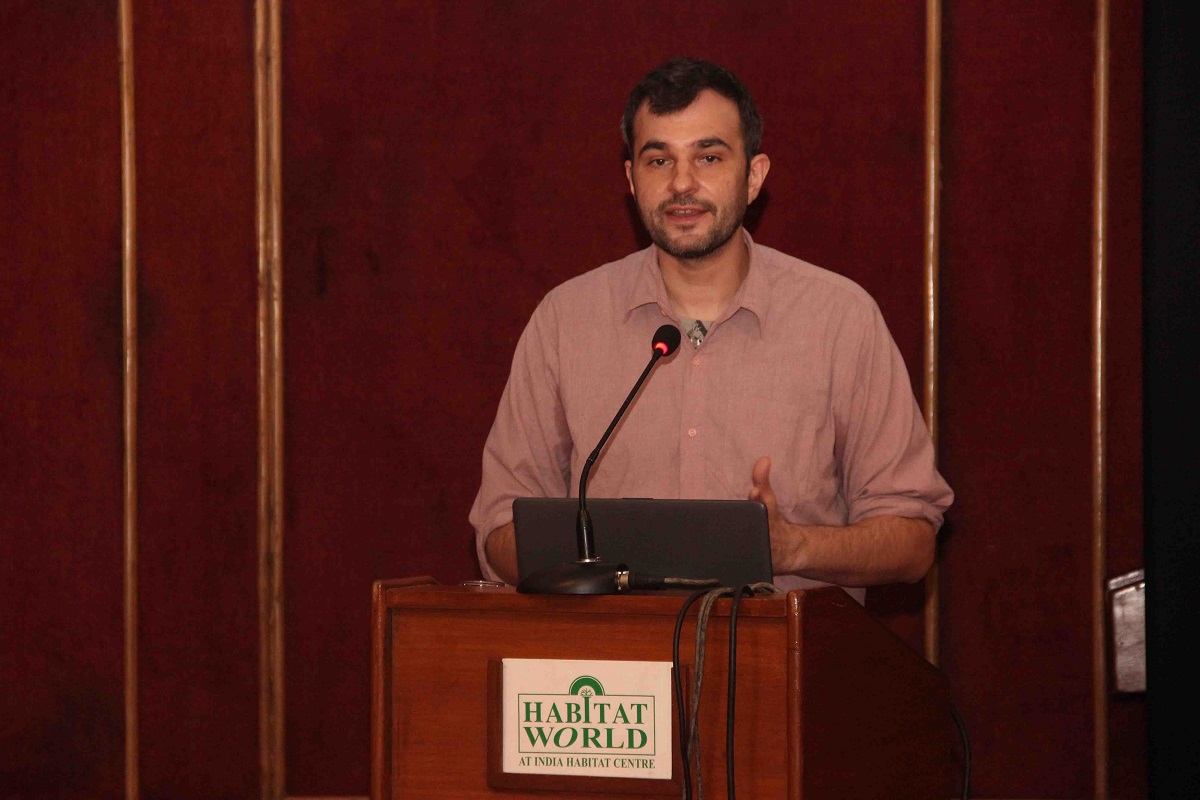Submitted by Tanya Khanna
Recapitulation: Restoring Urban Water Bodies By Natural Means
India Architecture News - Nov 05, 2019 - 14:02 9421 views

“What India needs are innovative techniques using existing technologies. We cannot emulate the Western approach, specifically, when it comes to wastewater.”
Held on 30th September 2019 at the India Habitat Centre, the 50th Talk in the Series focused on the restoration of water bodies by natural means, illustrated through the speaker’s extensive fieldwork. The key speaker at the event was Tarun Sebastian Nanda, an Indian-origin Anglo-Dutch environmental engineer who has worked in the government as well as private sector for half a decade.
Mr Nanda’s work in the field – fuelled by a desire to leave behind desk work and assess the issues plaguing our ecosystems in person – commenced with the analysis of depleting groundwater levels. He described his field in the work and devising the strategy of constructing wetlands to recycle wastewater, a scheme he now aspires to implement across all of Delhi.
Stressed upon the need for adopting contextually suitable solutions, Mr. Nanda then described his various restoration projects undertaken across the country – most notably, the rejuvenation of the Hauz Khas lake in the national capital, and the Adopt An Island campaign in Goa which trained participants in creating and sustaining their own floating wetlands, demonstrating the simplicity and feasibility of his idea.
As our cities grow, the supply of potable water becomes a critical resource that runs in the red more often than not. Mr Nanda’s techniques offer a viable solution that brings the power – as well as the responsibility – of resource management in the hands of the end-user, making each citizen an active participant of ecological conservation efforts. His efforts also opened the stage for a lively debate on similar homegrown efforts for restoring water bodies and susceptible ecologies, with the audience sharing learnings on the respective successes and challenges of their immediate interventions.
With this talk, Architecture & Society has hit the half-century mark. Over the last four years, experts from varying fields have gathered at the Amaltas – and more recently, as our numbers swell, the Gulmohur on occasion – to address the issues plaguing our times. We have striven, in this time, to bridge the gap between the pedagogy and the public by creating a forum where the vanguard, the dilettante, and the layman have an equal chance to put their points forth and be heard. As we face the largest climate crisis of our times, this platform – for the discussion it generates, and the awareness it brings – has become more important than ever in aligning our efforts for a greater goal.
Chair: M.N. Ashish Ganju, collab. Greha
Communications Partner: Epistle Communications
About Architecture and Society Talk Series
'Architecture and Society' talk series is a monthly forum organised by Greha in collaboration with Epistle Communications - at the India Habitat Centre. Each month, the forum invites architects, urban practitioners, academicians and research scholars from the entire country to talk about their work. The intent of the forum is to gather students, practitioners and the public of Delhi in one space where discussions on the future of the built environment in India can take place.
About Greha
Since its inception in 1974, Greha has concentrated on the growth of knowledge in the field of environmental development, habitat design and architecture. The thrust of Greha's efforts have been towards addressing issues of the majority of the population; the focus was the marginalised people in rural and urban settlements; the vehicle was developing knowledge and methodologies concerning settlement systems more suited to our history and cultural context.
The founder members, during the early stages of their professional careers, would meet periodically to engage with majority concerns, away from the routine of the practice.
These concerns led them towards working with the poor and marginalised people in Indian society and eventually to the establishment of a school of habitat studies.
Greha registered in 1986 as a non-government, not for profit society, with the aim of generating a body of ideas, involving diverse professional talent and promoting expert contribution in development projects undertaken by public agencies.
About Epistle Communications
Epistle is a communication consultancy providing bespoke, strategic consulting services for architecture, design, planning and allied disciplines.
Follow Greha on Facebook, LinkedIn
Follow Epistle Communications on Facebook, LinkedIn, Twitter, Blog
Top image courtesy of Greha
> via Greha
